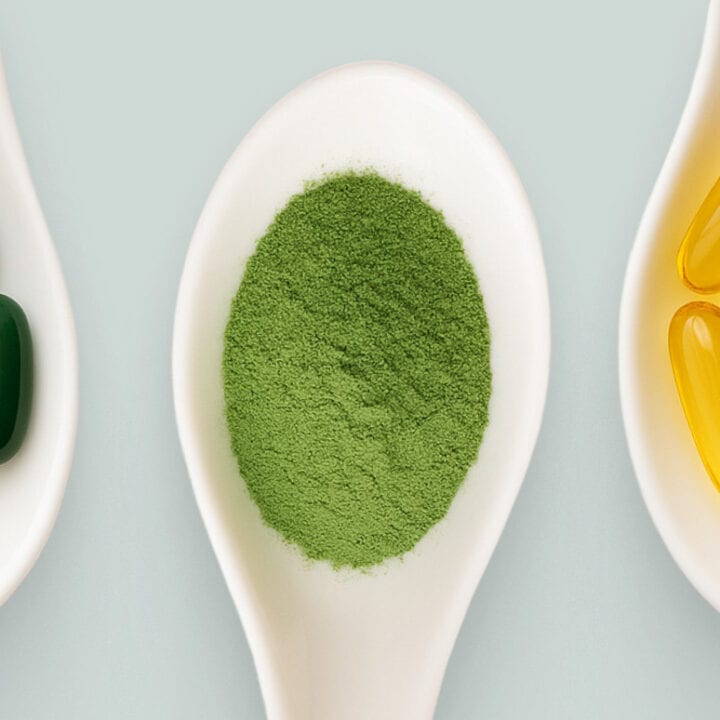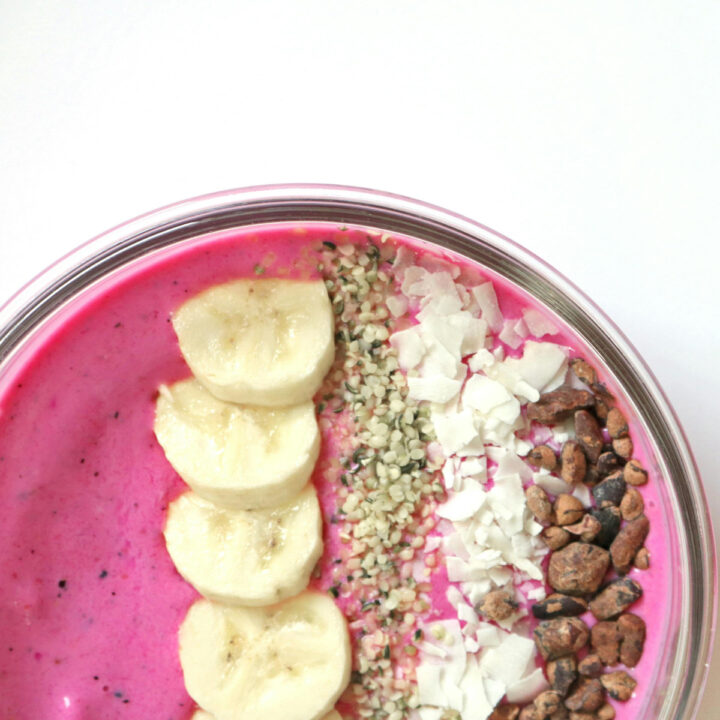If you’re wondering “Is Jello vegan?”, the short answer is no; traditional jello typically contains gelatin, an animal-derived ingredient. This article explores why standard jello does not align with a vegan diet and will introduce plant-based alternatives that offer the same delightful texture.
Key Takeaways
Regular jello isn’t vegan as it’s made from animal-derived gelatin, which is a processed form of collagen obtained from skin, bones, and tendons of pigs or cows.
Vegans can indulge in their favorite gelatinous desserts using plant-based substitutes like agar agar and carrageen, derived from seaweed, which mimic the texture and gelling properties of traditional gelatin.
For convenience, there are pre-made vegan jello options available in stores, and vegan jello can be used in a variety of creative ways, such as in jello shots, gummy bears, and fruit cups.
Decoding the Ingredients: Is Traditional Jello Vegan-Friendly?

Traditional jello is a childhood favorite, often associated with hospital stays or birthday parties. But do you know what it’s made of? Gelatin, the key ingredient in jello, comes from animal skin, bones, tendons, and ligaments, usually from pigs or cows. The hides and bones of these animals are processed to extract collagen, which then transforms into gelatin for use in traditional jello. Interestingly, there’s a common myth that jello is made from horse or cow hooves, but in reality, hooves are primarily made of keratin, which cannot convert into gelatin.
For those who follow a vegan lifestyle, the use of animal-derived gelatin in traditional jello might be surprising and unacceptable. The gelatin, sourced from bovine and pig parts including skin, cartilage, and bones, renders regular jello unsuitable for vegans.
The Vegan Verdict on Gelatin Powder
Gelatin powder, a common ingredient in many sweet treats, is another non-vegan product. It’s produced from animal body parts such as skin, bones, and connective tissue. The manufacturing process involves pretreating the animal parts in acid or alkali, followed by hot water extraction, purification, and drying into sheets or powder. Gelatin is typically extracted from cows, pigs, and less commonly, from fish and birds.
Not even kosher gelatin, usually derived from fish, is vegan-friendly. Ultimately, all conventional gelatin, coming from animal sources, conflicts with vegan principles. Crucially, gelatin production reinforces the industrial factory farming system, a practice vegans oppose.
Plant-Based Wonders: Vegan Gelatin Substitutes

Now that we’ve uncovered the truth about traditional jello and gelatin powder, let’s turn our attention to the good news: vegan gelatin substitutes. These plant-based wonders offer an ideal solution for vegans looking for a guilt-free way to enjoy their favorite jiggly dessert.
We invite you to explore agar agar and carrageen, the sea vegetable stars of the vegan gelatin and vegetarian substitute world.
Agar Agar: The Sea Vegetable Superstar
Agar agar, a vegan-friendly alternative to gelatin, is derived from red algae. It offers a vegetarian alternative that doesn’t involve harm to animals. The substance is available in both flake and agar powder forms. When in flake form, you may require up to three times the amount needed for the powder form. To use agar agar as a gelatin alternative in recipes, dissolve it in hot water before adding it to the recipe.
In substituting gelatin with agar agar, initiate with one-third the gelatin quantity specified in the recipe, then adjust as required to reach the ideal texture. Dissolve agar agar in a small volume of liquid before incorporating it into the main recipe. Its gelling capabilities render it a flexible ingredient in vegan cooking.
Carrageen: Another Seaweed Solution
Another vegan gelatin substitute is carrageen, also known as kappa-carrageenan. Derived from edible red seaweed, it has traditionally been used as a gelling agent and thickener in British foods. Different types of carrageenan—mainly iota, kappa, and lambda—have distinct gelling and thickening properties suitable for various applications, including vegan jello.
To use carrageen in vegan jello recipes, follow these steps:
Heat the carrageen above 60°C to dissolve it.
Combine the dissolved carrageen with specific salts, such as potassium salts, to create firm textures.
Allow the mixture to cool and form gels.
Experiment with different amounts of carrageen and salts to achieve the perfect texture in your vegan jello recipes.
By following these steps, carrageen can help you achieve the perfect texture in your vegan jello recipes.
Crafting Your Own Vegan Jello Recipe

Now that you’re aware of the vegan alternatives to gelatin, let’s venture into crafting your own vegan jello at home. With basic ingredients like fruit juice and agar agar flakes or powder, you can easily whip up a vegan jello recipe that’s both delicious and guilt-free, allowing you to enjoy vegan gelatin with ease.
Choosing the Right Juice
When it comes to making vegan jello, the juice you choose can make a significant difference. Not only does it contribute to the flavor, but it also affects the jello’s appearance. Some fruit juices that you can use to add delightful flavors and a colorful appeal to your vegan jello are:
Cherry
Strawberry
Blueberry
Peach
Bear in mind, though, that some juices must be avoided. Those containing enzymes such as bromelain or papain, often present in pineapple or papaya, can inhibit proper setting of your vegan jello. Therefore, the correct juice selection is crucial for a successful vegan jello recipe. Some juices that work well for vegan jello include:
Apple juice
Grape juice
Cranberry juice
Orange juice
Avoid using juices that contain enzymes or have a high acidity level, as they may prevent the jello from setting properly.
Flavorful Additions and Sweetness
Beyond the juice, there are several ways to enhance the flavor and sweetness of your vegan jello. Natural sweetness can be achieved by using 100% fruit juices, such as grape or apple juice. You can also experiment with adding chopped fruit like sliced grapes, berries, or mandarin orange slices for added texture and flavor.
For those aiming to elevate their vegan jello creations, imaginative combinations like cranberry juice with limoncello can satisfy diverse taste preferences. Remember, presentation matters too! Edible adornments like gold sprinkles lend an elegant touch to your vegan jello servings, and both natural and artificial food coloring, including green food coloring, can be employed to boost your vegan jello’s visual appeal.
Store-Bought Vegan Jello Options

If you’re pressed for time or simply prefer ready-made options, there are several store-bought vegan jello mixes available when a recipe calls for a quick and easy solution. Some recommended brands include BaKol Jel Desserts, Fried Dandelions, and Spabettie, which offer vegan versions of this popular dessert.
One of the popular options is Simply Delish, which offers a plant-based Raspberry Jel Dessert that is sweetened with naturally-derived Stevia, free from sugar. The ingredients do not contain common allergens such as peanuts, tree nuts, sesame, wheat, dairy, egg, soy, and fish, making it a safe choice for those with dietary restrictions.
Moreover, Simply Delish jel desserts are Kosher certified, made with all-natural and Non-GMO verified ingredients, and are free from preservatives, artificial colors, and flavors.
Fun with Vegan Jello: Creative Uses

Beyond the traditional jello mold, vegan jello can be used in a variety of fun and innovative ways. Here are some exciting uses:
Vegan jello shots
Gummy bears
Fruit-filled jello cups
Jello parfaits
Jello popsicles
Jello cake fillings
Jello fruit salads
The possibilities are endless!
Party-Perfect Vegan Jello Shots
Jello shots are a party favorite, and you don’t have to miss out just because you’re vegan. Vegan jello shots mix alcohol with an agar agar and fruit juice jello base, creating a fun adult treat. Combinations such as limoncello with cranberry juice or vanilla-flavored vodka with complementary juices can create a flavorful variety of vegan jello shots.
Be mindful to limit the alcohol quantity in the mix to avoid an overpowering taste that might detract from the enjoyment of your jello shots. A dash of creativity can help you concoct party-perfect vegan jello shots that are sure to impress your guests.
Vegan Gummy Bears: A Sweet Snack
Who doesn’t love gummy bears? These sweet, chewy treats are a favorite for both kids and adults alike. With vegan jello, you can make your own vegan gummy bears at home, providing a plant-based alternative to traditional gummy snacks.
Ingredients such as pectin or carrageenan can be utilized in place of gelatin for the gummy consistency. Natural sweeteners like agave syrup or maple syrup are employed to sweeten vegan gummy bears without the need for refined sugar. For additional color and flavor, natural sources like juices or fruit extracts can be added to the gummy mixture. The process involves heating the vegan jello with the appropriate amount of water and sweetener, and then cooling it in molds for the setting process.
Enjoy Eating Sweets Without the Guilt
Opting for vegan jello over traditional jello is not only a decision that respects animal life but also promotes healthier choices. Vegan jello commonly lacks:
Artificial colors
Flavors
Sweeteners
Preservatives
This makes it a healthier alternative to traditional jellos. Additionally, although rare, allergies to gelatin can be severe, causing adverse reactions in some individuals; this risk is eliminated with vegan jello.
Vegan jello provides the same texture and enjoyment as traditional jello without contributing to animal suffering. So, you can enjoy eating sweets without the guilt, knowing that you’re making a choice that’s not only good for you, but also kind to animals. Plus, it’s accidentally vegan, making it a delightful surprise for those who stumble upon it.
Summary
In conclusion, vegan jello offers a flavorful and fun alternative to traditional jello, all while respecting your vegan lifestyle. With plant-based gelatin substitutes like agar agar and carrageen, you can enjoy a diverse array of desserts from jello molds, jello shots, to gummy bears. Whether you’re making your own at home or opting for store-bought options, vegan jello allows you to enjoy sweets without the guilt. So, why not give it a try? Dive into the world of vegan jello and discover a new way to satisfy your sweet cravings.
Frequently Asked Questions
What do vegans use instead of gelatin?
Vegans use plant-based gelatin alternatives like cornstarch and agar agar instead of gelatin, as they can replicate similar textures and are activated with hot liquid. So, you can easily substitute gelatin with these options in your recipes!
Is there a vegan version of jello?
Yes, there is a vegan version of jello called Natural Jello Dessert Mix by Garden Desserts, which is gluten-free, dairy-free, non-GMO, and kosher gelatin-free.
Is there a vegan substitute for Jello?
Yes, agar agar, made from red algae, is a vegan substitute for gelatin and has no noticeable flavor.
Why is Jell-O not vegan?
Jell-O is not vegan because it is made from gelatin, which is derived from animal bones and skin. This makes it unsuitable for those following a vegetarian or vegan diet.
Can a vegan eat Jello?
No, because Jello contains gelatin, which is not suitable for vegans or vegetarians. So, it's better to avoid it if you follow a vegan diet.

Cassie Anderson is a vegan healthy and fitness lifestyle writer who shares her passion for plant-based nutrition, wellness, and fitness. She believes that veganism is not only good for the animals, but also for the planet and the people. She inspires her readers and followers to adopt a vegan lifestyle that is balanced, sustainable, and enjoyable. She also provides practical tips, recipes, workouts, and reviews of vegan products and services. Cassie has a degree in nutrition and health sciences, and is a certified personal trainer and yoga instructor.
Cassie Anderson is a vegan healthy and fitness lifestyle writer who shares her passion for plant-based nutrition, wellness, and fitness. She believes that veganism is not only good for the animals, but also for the planet and the people. She inspires her readers and followers to adopt a vegan lifestyle that is balanced, sustainable, and enjoyable. She also provides practical tips, recipes, workouts, and reviews of vegan products and services. Cassie has a degree in nutrition and health sciences, and is a certified personal trainer and yoga instructor.




Comments
No Comments